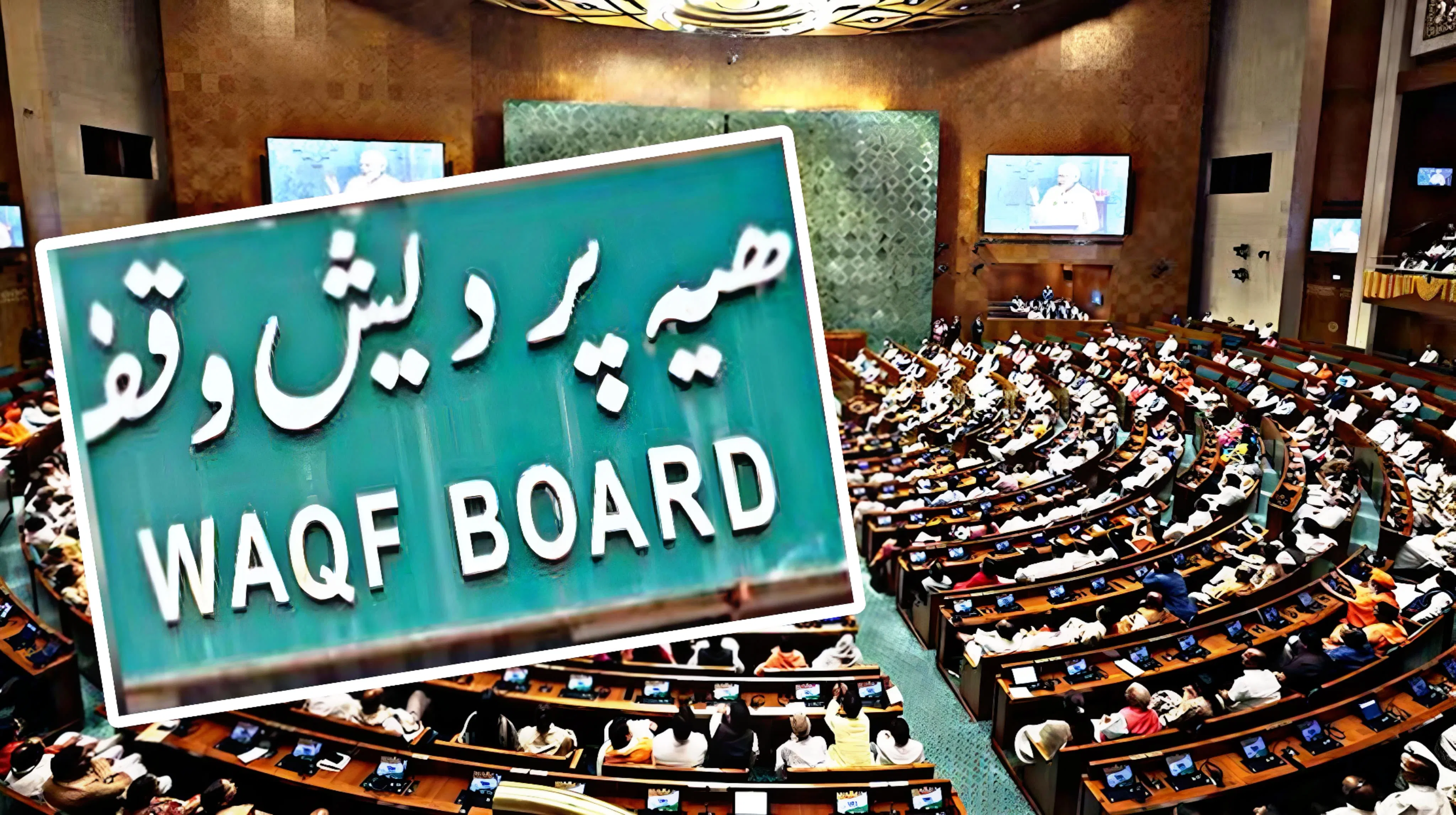Waqf (Amendment) Bill 2024: Government Control vs. Religious Autonomy

Devanshi Batra, TwoCircles.net
New Delhi: The Bharatiya Janata Party (BJP)-led National Democratic Alliance (NDA) government in the Centre recently tabled the Waqf (Amendment) Bill 2024 in Parliament, igniting a significant controversy. The proposed amendments have faced strong opposition from the All-India Muslim Personal Law Board (AIMPLB), Muslim leaders and Opposition parties, who argue that the bill threatens the autonomy and rights of Waqf properties — Islamic charitable endowments — across the country and unfairly targets the Muslim community. However, some believe that the amendments are long overdue.
Professor Faizan Mustafa, vice chancellor of the Chanakya National Law University, Patna, expressed a nuanced view in a YouTube video. He acknowledged that while the amendments could represent positive development, it is crucial to ensure that safeguards are in place to protect Waqf properties without infringing on constitutional rights to freedom of religion. He emphasized the need for fine-tuning the bill.
The bill, which failed to pass due to insufficient majority support, has been referred to a Joint Parliamentary Committee (JPC) for further examination. This move followed protests from Opposition MPs, who condemned the proposed legislation as “unconstitutional”, “anti-federal” and “discriminatory” against Muslims.
Currently, Waqf properties in India are regulated by the Waqf Act of 1995, with the legal framework dating back to 1913. Previous legislations include the Muslim Waqf Validating Act of 1913, the Mussalman Wakf Act of 1923 and the Central Waqf Act of 1954, which was eventually replaced by the Waqf Act of 1995.
AIMPLB spokesperson Syed Qasim Rasool Iliyas asserted that the Waqf Act and Waqf properties are protected by the Constitution of India and the Shariat Application Act of 1937. “The Waqf Act and Waqf properties are protected by the Constitution of India and the Shariat Application Act, 1937. Consequently, the government cannot amend these laws in a way that changes or alters the nature and status of Waqf properties,” he told TwoCircles.net.
Several Muslim organizations, including the Jamaat-e-Islami Hind (JIH), have criticized the bill for being drafted without consulting the community.
Key Provisions of the Waqf (Amendment) Bill 2024
The Waqf (Amendment) Bill 2024 proposes sweeping changes to the management and regulation of Waqf properties. Critics argue that the bill’s most significant drawback is the increase in government oversight. The bill seeks to grant state governments greater control over Waqf boards, including the appointment of board members and decision-making authority over Waqf properties.
Professor Mustafa commented, “The existing laws of the Waqf Board don’t prevent the nomination of non-Muslim members in the panel.” He and other critics argue that the bill undermines the autonomy of Waqf institutions and represents a government attempt to exert control over religious endowments, potentially infringing on the constitutional rights of the Muslim community.
A Waqf board oversees philanthropic endowments made by Muslims for religious purposes. India has 30 Waqf boards managing nearly 900,000 properties nationwide.
Iliyas claimed that the government aims to alter the Waqf properties’ status and nature through approximately 40 amendments, making their possession easier.
The bill proposes that district collectors gain increased authority over Waqf boards. Collectors would act as arbitrators in disputes between the government and Waqf boards, investigating and reporting on any property disputes. An amendment to Section 3 of the Act would mean any government property identified or declared as Waqf property would not be considered Waqf property.
Previously, Waqf boards handled applications for registering properties as Waqf. The bill stipulates that boards must now forward such applications to district collectors for verification and reporting. The bill also introduces stricter regulations on the sale, lease or transfer of Waqf properties to “address concerns of mismanagement and corruption”.
One debated aspect of the Waqf Act is Section 40, which grants the board authority to determine if a property is Waqf property. The amendment bill proposes removing this section entirely, which critics argue could lead to arbitrary claims of land as Waqf property.
The bill also aims to modify the composition of the Central Waqf Council and state Waqf boards, including Muslim women and even non-Muslims, and proposes creating a separate ‘Board of Auqaf’ for the Bohra and Aghakhan communities.
AIMPLB’s Opposition
The AIMPLB and various Muslim organisations have expressed strong opposition, arguing that the bill undermines Waqf institutions’ independence and encroaches on religious rights. Iliyas emphasized that any change to the Waqf Act that alters the nature of Waqf properties or diminishes the powers of Waqf boards will be “unacceptable”.
Opposition MPs argue that the bill is “unconstitutional”, citing Articles 14, 25 and 26, which protect religious self-management and property administration rights. Critics fear that centralizing power and creating a central Waqf tribunal could target valuable Waqf properties, potentially transferring them to private interests.
In defense, supporters of the bill argue that it is a necessary step to improve management and protection of Waqf properties. They assert that the amendments “aim to curb corruption and enhance transparency” within Waqf institutions, which have faced accusations of financial irregularities and mismanagement.
Rishabh Jain, a civil lawyer, defended the bill as a means to bring much-needed transparency and accountability, asserting that it would resolve disputes efficiently and prevent misuse of Waqf properties. He argued that empowering district administration officials to address disputes is a positive step.
The Waqf (Amendment) Bill 2024 marks a critical moment in the discourse on managing religious endowments in India, balancing the need for better oversight with concerns about religious freedoms and institutional independence.
